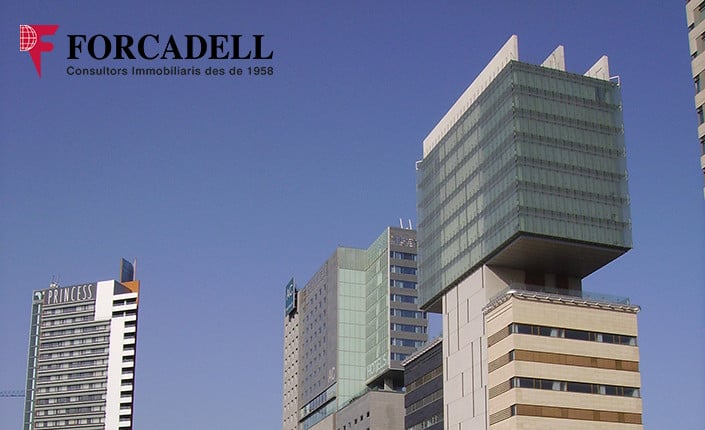
This article was written and published in Spanish and has been translated into English via Google Translate. Click here to read the original article.
If last year 'co-working' was one of the most repeated words, in 2019 it seems that all eyes will be on residential co-living. So much so that Barcelona is already preparing to receive the first operators: the Consorci de la Zona Franca, a public entity with the objective of economic revitalization of the city of Barcelona and its metropolitan area is already managing licenses to open its first centers of 'co-living' in the neighborhood of La Marina.
Although the names of the companies that will disembark in Spain under this model are currently unknown, sources in the sector say that they have already begun to process the first permits for projects that are in the initial phase. "Just as co-working has become a success phenomenon for the office market in Spain in the last 2 years, professionalized co-living wants to follow in its footsteps and try its luck in the residential market," explain from the real estate consultancy Forcadell.
"The large international investment funds, in their search for alternative assets that offer higher returns, are studying the Spanish market to implement this model, which has already triumphed in other countries such as the US, Germany, the United Kingdom and Tokyo," they stated.
With their entry, these operators will professionalize a common practice in Spain of housing sharing by adding sophisticated aspects typical of student residences. The 'co-living' projects that have been developed so far have designed complexes with, on the one hand, individual rooms and toilets and, on the other, large common areas with movie theaters and games (with ping pong, billiards, etc.), libraries, gyms, restaurants and swimming pools, among others.
According to Toni López, partner of Forcadell and director of the area of real estate of company, "the 'millennials' have changed the way of consuming and have championed a change of social thought around the property, the experience and the use; it is logical and inevitable that this trend has reached the real estate sector." It is a generation that values experiences and seeks to optimize resources to the maximum, paying only the use and experience of a good, without the cost or management of owning it.
Medici and Corestate have become the first groups to look at Spain closely for their first homes under the formula of co-living. As advanced idealist / news, Medici Living wants to bring its model of 'co-living' to more markets in Europe and has set in Spain as one of its new objectives to exploit.
The German company has joined forces with the German fund Corestate to invest more than one billion euros in the development of its business throughout Europe. In the Spanish market, the company will operate under the brand Quarters and already negotiates its first 'co-living' project in the center of Barcelona.
Medici Living and Corestate have defined their attack formula for cities with more than half a million inhabitants and assets to be rehabilitated or newly built, with an average investment ticket of between 20 million euros and 60 million euros. The plans of both groups are to have 35 assets in the coming years operating under the brand Quarters and manage more than 6,000 beds.
The company has explained that, among its plans, are the acquisition, promotion and management of assets for its reconversion into 'co-livings' "We want to be the WeWork of the 'co-living'," said the founders of Medici Living.
Medici has three 'co-living' buildings located in Berlin, with a capacity for 45 residents and nine apartments; and two more in the United States, in cities such as New York or Chicago, where the monthly payments have a range of between 1,100 dollars (967 euros) and 1,500 dollars (1,320 euros).
After the capital injection received by Corestate, Medici Living will be able to take its Quarters model to other cities. In addition to Barcelona, his plans in Europe include the opening of co-livngs in London and Paris. The company's strategy is to open this type of residences in the main capitals of the world, so there is also a forecast to take this model to Washington, Los Angeles, San Francisco, Sao Paulo, Sydney, Shanghai or Tokyo in the medium term.
This article was written and published in Spanish and has been translated into English via Google Translate. Click here to read the original article.
Join us in Bangkok the 19th to the 22nd of March for the Property Portal Watch Conference.
